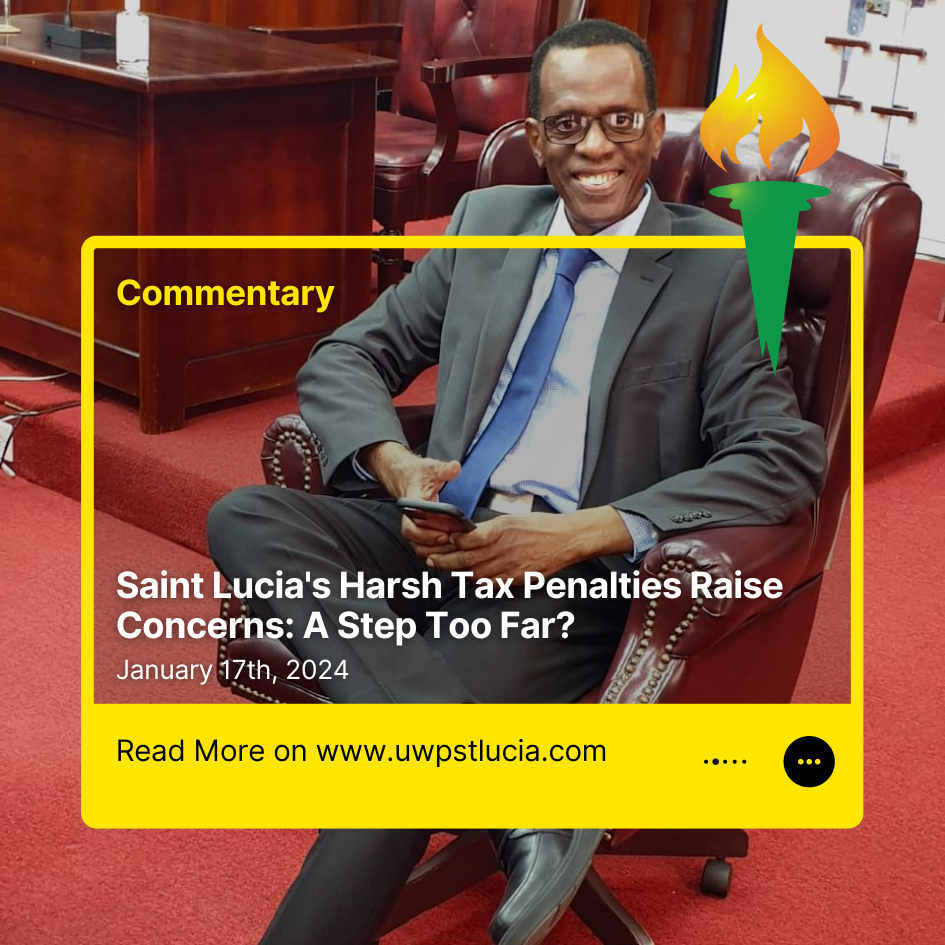The Government of Saint Lucia has proposed a series of stringent measures targeting individuals who have fallen behind on their tax payments. The proposal, which includes a dramatic increase in penalty interest rates and unprecedented authority granted to the Comptroller of Inland Revenue, has sparked a heated debate about the balance between enforcing tax laws and protecting citizens’ rights.
Firstly, the proposal seeks to double the penalty interest rate for unpaid taxes from 10% to a staggering 20%. This sharp increase has been criticized as excessively punitive, particularly in a time where many are still reeling from the economic impacts of recent global events. Critics argue that such a heavy-handed approach could plunge people into deeper financial distress, rather than incentivizing timely payments.
More alarmingly, the proposal empowers the Comptroller of Inland Revenue with the authority to seize personal assets, including homes, to settle outstanding tax debts. This move has raised serious concerns about potential abuses of power and the erosion of property rights. The thought of losing one’s home over unpaid taxes is not only distressing but also poses a threat to the fundamental principle of secure home ownership.
Moreover, the proposed policy introduces a requirement for individuals with tax arrears to obtain travel permission. This condition has been met with strong opposition, as it is perceived as an infringement on personal freedom and mobility. Critics have likened it to a form of financial imprisonment, where a citizen’s right to travel is contingent upon their financial standing with the government.
The backlash against these proposals is not without merit. Advocates for taxpayers’ rights argue that while tax compliance is essential for the nation’s fiscal health, it should not come at the cost of fundamental human rights and dignities. There is a growing call for the government to reconsider these measures and seek alternative solutions that ensure tax collection without resorting to such extreme and potentially harmful methods.
As debate continues, the SLP Government faces a critical choice: to proceed with these harsh penalties and face public outcry or to find a more balanced approach that respects both the need for tax compliance and the rights of its citizens. The resolution of this issue will be a telling indicator of the government’s priorities and its commitment to upholding the principles of fairness and justice in its fiscal policies #PierreEhCare#PuttingYouWorse#SaveourSaintLucia#PeoplePower


Comparing Costs: The St Lucia Labour Party’s Hypocrisy on Sports Facility Spending
The St. Lucia Labour Party (SLP) previously criticized the UWP Administration for allocating EC$2.5 Million to International Sports Venue Design and Development Specialist, Don Lockerbie, for the design, procurement, and supervision of upgrades to five national sports facilities. These facilities included the Soufriere Mini Stadium, Desruisseaux Playing Field, Micoud Playing Field, Dennery Sports Complex, and the Saint Lucia Sports Academy.…
Read more
by Content Manager